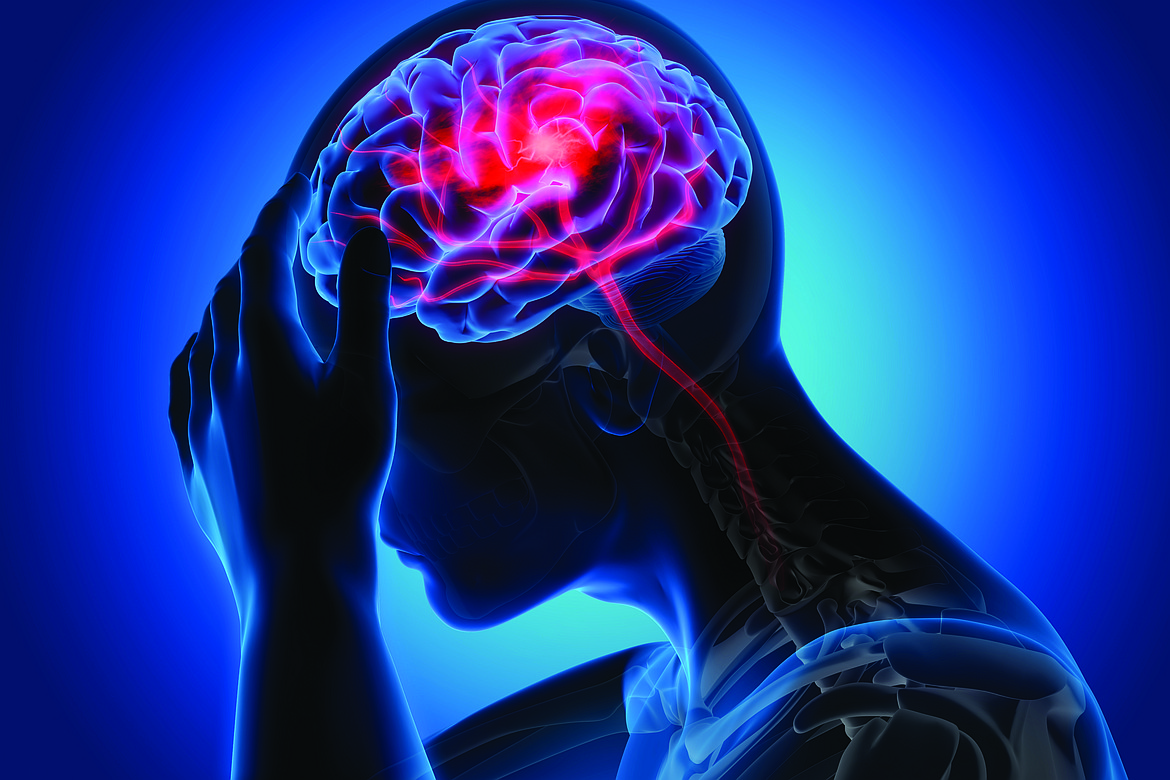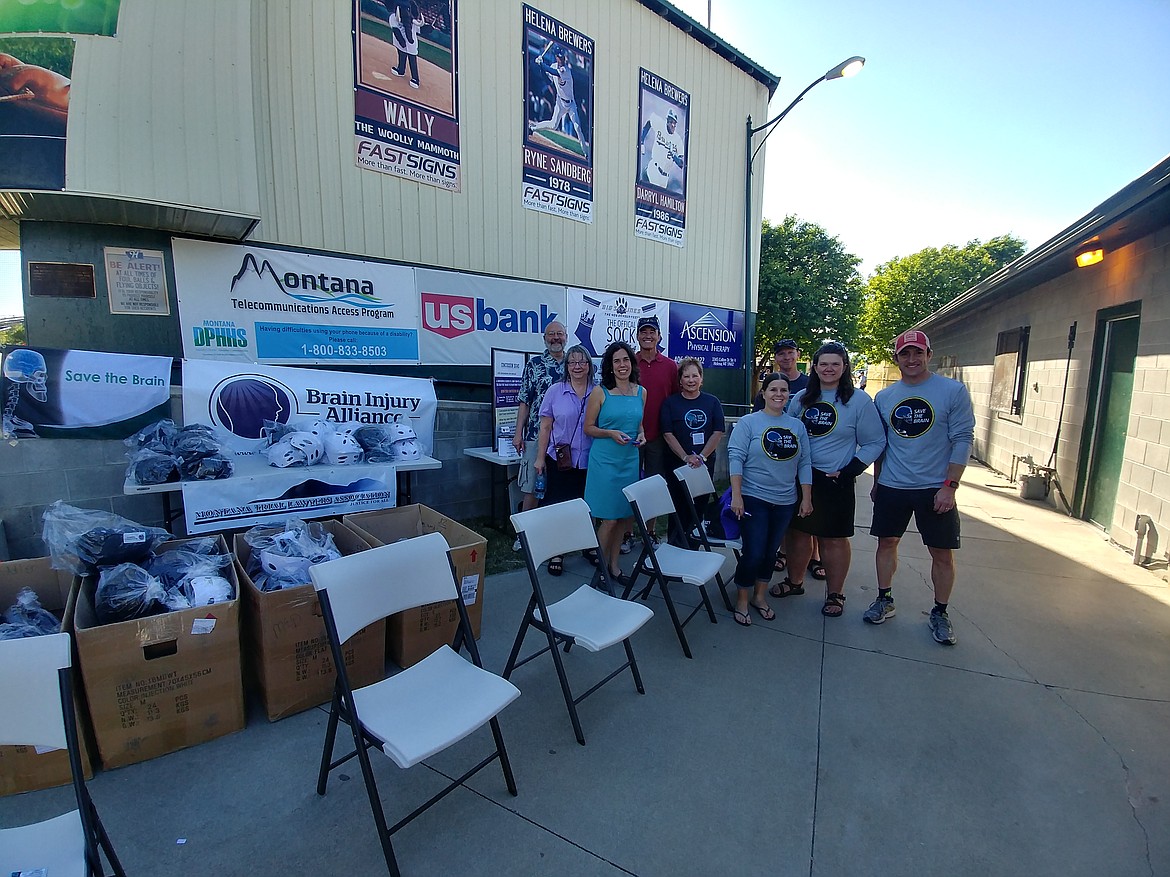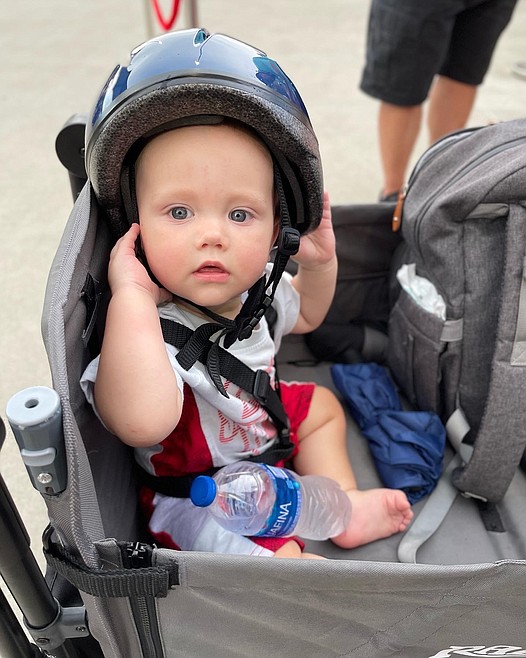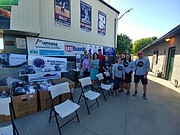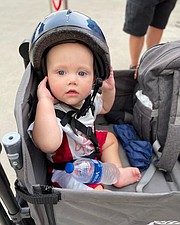Professional fighters come to Kalispell to highlight brain injury awareness
TAYLOR INMAN | Hagadone News Network | UPDATED 2 years, 5 months AGO
Taylor Inman covers Bigfork and the north shore for the Bigfork Eagle and hosts News Now and other podcasts for the Daily Inter Lake. Originally from Kentucky, Taylor started her career at the award-winning public radio newsroom at Murray State University. She worked as a general assignment reporter for WKMS, where her stories aired on National Public Radio, including the show “All Things Considered.” She can be reached at 406-758-4440 or at [email protected]. | August 13, 2023 12:00 AM
Montana is in the top three states across the nation for traumatic brain injury related deaths, according to the Centers for Disease Control and Prevention, and those that survive their injuries often find themselves entering into a world that is completely different to the one they inhabited before.
But Montana is just one of two states in the nation without brain injury specific state funded support, so advocacy groups rely heavily on donations and fundraisers to provide needed services. The lack of state dollars means those organizations must pass on federal grants that rely on matching state-level funds.
All of which is why a card of veteran fighters, including Matt “The Gracie Killer” Hughes, Pat “The Croatian Sensation” Militech, Alfonso “Alfie” Alvarez and Todd “The Kid” Foster, will descend upon the Wachholz College Center on Aug. 19. The slate is arriving in Kalispell to headline the Brain Injury Alliance of Montana’s Big Sky Fight Club Banquet and Auction.
Executive Director John Bigart III said the organization sees all kinds of causes for traumatic brain injury in Montana, from car accidents to concussions. Through partnerships with health care providers, rehabilitation centers, peer support networks and other statewide disability organizations, the alliance connects survivors and their loved ones with resources to maximize their recovery and quality of life.
The group holds bike helmet giveaways for kids across the state each summer and runs the Brain Injury Help Line. The help line launched in 2006 and has aided thousands of people navigate how to get back to work, school and other aspects of life they enjoyed before their injury.
Just getting the word out can help those suffering from traumatic brain injury feel less alone.
“Without good support and resources, brain injury survivors and their families often feel isolated as they navigate the uncertain waters of having an ‘invisible injury,’” Bigart wrote in an email. “While brain injury may be an invisible injury, the survivors are not.”
Kevin Moore works in donor relations for the Brain Injury Alliance of Montana. He said he sustained a traumatic brain injury after a car rollover in 2014.
“I sought out somebody that could help facilitate the health care that I needed. I couldn't find anybody and that's how I found the brain injury alliance,” Moore said.
Through the alliance, Moore connected with a therapist and brain injury specialist who helped him get on a track to recovery. In addition to trying out hyperbaric chambers and ice plunges, his doctor suggested focusing on activities that soothed him.
“He said you need to try and focus on doing things that will help calm your brain, like your fly fishing and your bow hunting, your jiu jitsu, painting … you have to do things even if it's like baby steps,” Moore said.
Also a former professional fighter, Moore said it can be empowering for victims of traumatic brain injury to hear from their sports heroes who have endured similar experiences. He points to Big Sky Fight Club guest Matt Hughes, who sustained a traumatic brain injury after his truck was hit by a train in 2017.
“Here you’ve got a guy that is literally a superman in the industry and a traumatic brain injury has affected his life, like nothing else in his past, and yet he's a survivor,” Moore said.
Bigart said there is a cultural shift happening in how people view brain injury. He said that with more athletes speaking up about chronic traumatic encephalopathy, a brain disorder likely caused by repeated head injuries, sport programs are making choices that will increase athletes’ safety.
Hughes, along with other survivors of traumatic brain injury, will be sharing their stories at The Big Sky Fight Club Banquet and Auction on Aug. 19. Tickets are $100 and the event will be catered by 406 BBQ. Auction items include unique autographed fight memorabilia, as well as items and packages from local businesses and more. Tickets and more information about the event can be found at biamt.org/event/big-sky-fight-club. The event is being held at the Wachholz College Center and begins at 5 p.m.
The Brain Injury Alliance of Montana and the Brain Injury Help Line can be reached at 800-241-6442 or at [email protected].
Reporter Taylor Inman can be reached at 406-758-4433 or by emailing [email protected].
ARTICLES BY TAYLOR INMAN

Lakeside resident serves community as first responder
Mike Sterry has flown with American Airlines for 35 years. Though he’s called Somers his home nearly that entire time, all his flights depart from Dallas, Texas.

Wings supports family during son’s battle with liver cancer
During a visit to the Cary’s home in Dayton, 3-year-old Bennett abruptly stops his playtime to make some proper introductions.

Bigfork Schools look to update network systems
A proposal to upgrade Bigfork school district’s uninterruptable power system is going before the school board on Wednesday. The system provides backup power to vital network and server equipment if there is a power interruption.

